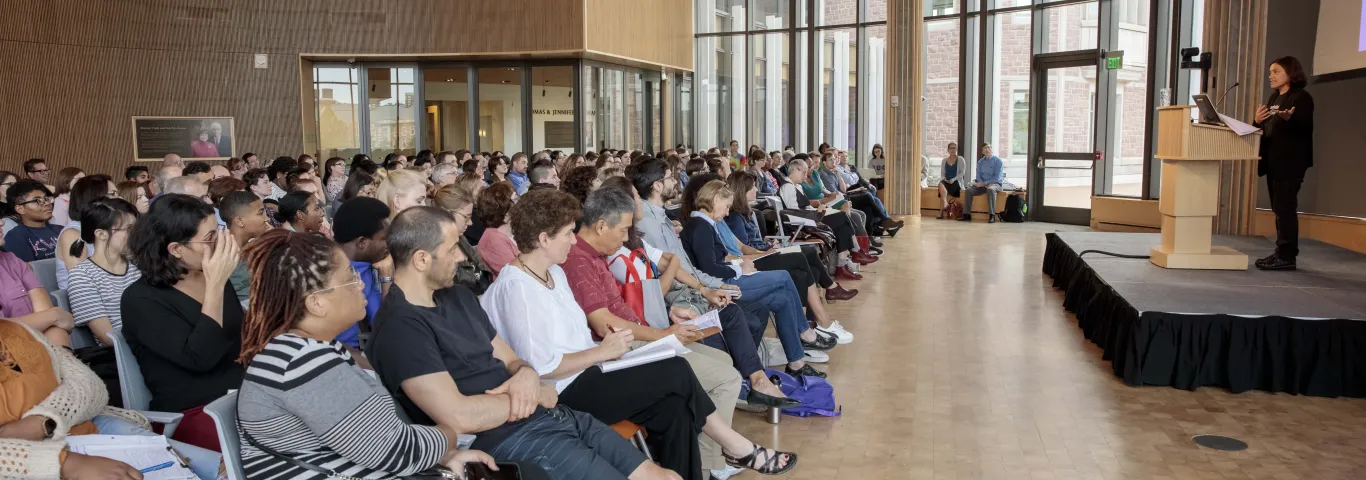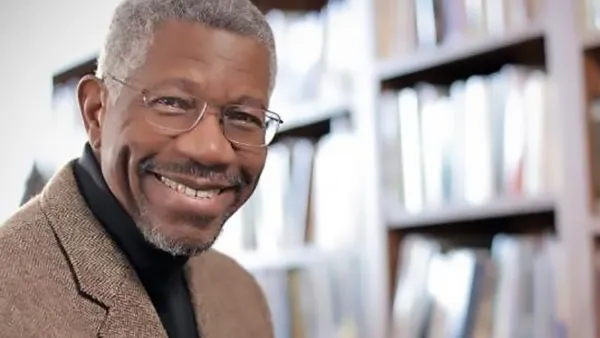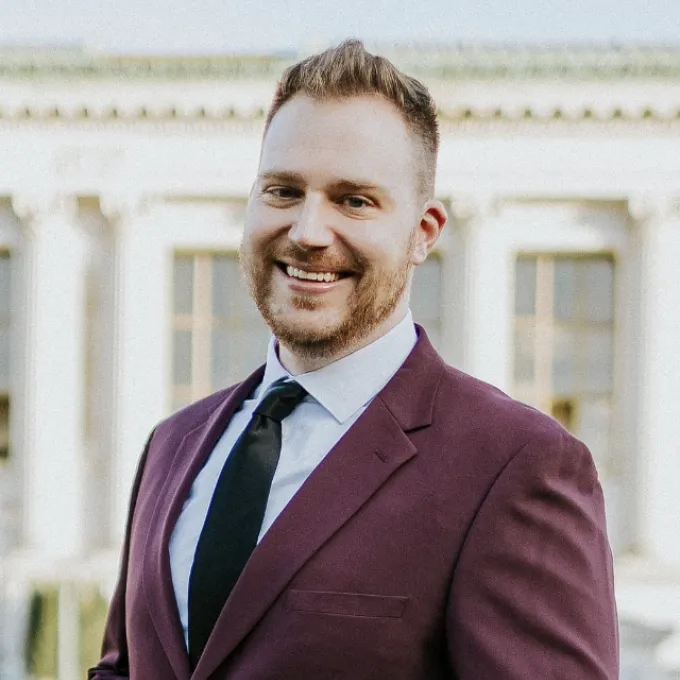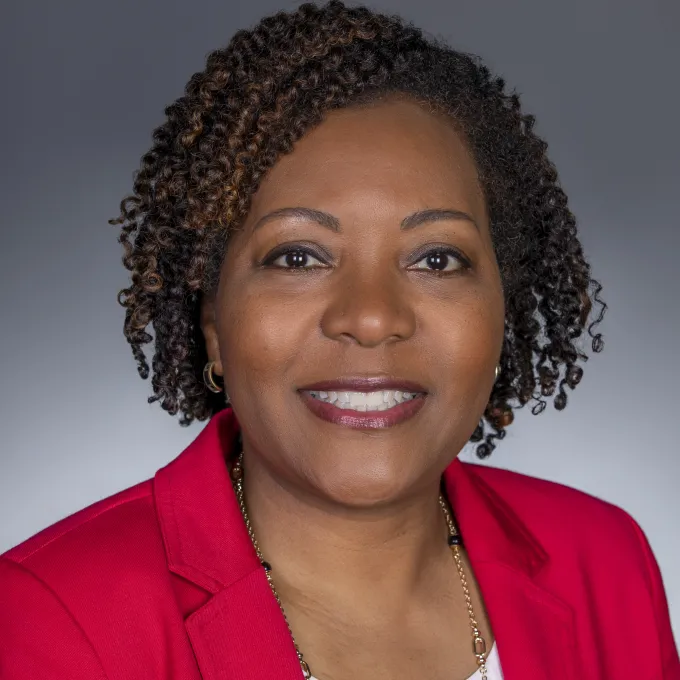“Community as Rebellion” (2023-24)
Lorgia García Peña, Professor of Latinx Studies, Princeton University
Weaving personal narrative with political analysis, Community as Rebellion offers a meditation on creating liberatory spaces for students and faculty of color within academia. Much like other women scholars of color, Lorgia García Peña has struggled against the colonizing, racializing, classist, and unequal structures that perpetuate systemic violence within universities. Through personal experiences and analytical reflections, the author invites readers — in particular Black, Indigenous, Latinx, and Asian women — to engage in liberatory practices of boycott, abolition, and radical community-building to combat the academic world’s tokenizing and exploitative structures.
Lorgia García-Peña, PhD, is a writer, activist and scholar who specializes in Latinx Studies with a focus on Black Latinidades. Her work is concerned with the ways in which antiblackness and xenophobia intersect the Global North producing categories of exclusion that lead to violence and erasure. Through her writing and teaching, García Peña insists on highlighting the knowledge, cultural, social and political contributions of people who have been silenced from traditional archives.
“Do Colleges and Universities Bear Responsibility for K-12 Public Education?” (2022-23)
Mary Schmidt Campbell, 10th President of Spelman College (2015-22)
VIDEO
Many of our nation’s great colleges and universities reside in large urban centers where public school education has been under-resourced, and students have been dramatically underserved. What responsibility, if any, should elite, well-resourced institutions of higher education assume for the public-school outcomes of the communities in which they reside?
In March 2015, Mary Schmidt Campbell, PhD, was named Spelman’s 10th president. She began her professional career in New York, as the director of the Studio Museum in Harlem at a time when the city of New York was on the verge of bankruptcy. Under her leadership, the museum became the country’s first accredited Black fine arts museum and a linchpin in the redevelopment of Harlem. She then served as commissioner of cultural affairs for New York City under two mayors, and from there entered the world of academia as dean of New York University’s renowned Tisch School of the Arts, where she served for over two decades.
“Remembering James McLeod and the Rise of Black Studies at Washington University” (2021-22)
Gerald Early, Professor of English and of African and African-American Studies and the Merle Kling Professor of Modern Letters, Washington University
VIDEO
Gerald Early is an award-winning essayist, author, and editor. He has served as a commentator for NPR and as a consultant for multiple documentaries with Ken Burns. Currently, Early is finishing a book about Fisk University. Early is the Merle Kling Professor of Modern Letters in the African and African American Studies Department at Washington University in St. Louis, where he has taught since 1982. He also has courtesy appointment in the American Culture Studies Programs and the English Department at Washington University. He earned an undergraduate degree in English from the University of Pennsylvania and a PhD in English and American literature from Cornell University.
He is the immediate past chair of the Department of African and African American Studies, serving from 2014 to 2021. He had previously served as director of the African and African American Studies Program from 1992 to 1999. He has also served as the director of the American Culture Studies Program, and was the founding director of the Center for the Humanities. He is also the executive editor of The Common Reader, Washington University’s interdisciplinary journal that is published under the auspices of the Provost.
“Cultural Memory and the Peri-Pandemic Library” (2020-21)
Bethany Nowviskie, Dean of Libraries, Senior Academic Technology Officer, and Professor of English, James Madison University
Decisions made now by scholars, archivists, librarians, and community organizers, acting as individuals and as representatives of their institutions and collectives, will shape our cultural memory of the pandemic—and our capacity for speculative thinking, beyond it. What roles must libraries and archives—community-based, federal, and academic—play in times of national trauma and transition? Can they partner more effectively with scholars and publics, even (or especially) in the middle of a mess? And how do we square the project of cultural memory—the job of liberal arts and memory institutions now—with the challenges that face it: inevitable losses, misinterpretations, and gaps; politically and personally motivated refusals to remember; and our own embeddedness in the contested commemorative landscapes of our campuses and towns?
Bethany Nowviskie is Dean of Libraries, Senior Academic Technology Officer and Professor of English at James Madison University. From 2015 to 2019, she directed the Digital Library Federation at CLIR (where she has also been a Distinguished Presidential Fellow) and served as a Research Associate Professor of Digital Humanities at the University of Virginia. Nowviskie has been a member of the teaching faculty at UVa’s Rare Book School since 2011, was the first director of the Scholars’ Lab at the University of Virginia Library (2007–15), and has served as chair of UVa’s General Faculty Council and special advisor to the UVa provost for the advancement of digital humanities research. A past president of the Association for Computers and the Humanities and chair of the Modern Language Association’s committee on information technology, Nowviskie received her Ph.D. in Literature from the University of Virginia in 2004 and has worked on numerous ground-breaking projects in digital libraries and the digital humanities. In 2013, she was named one of “Ten Tech Innovators” by the Chronicle of Higher Education, which pretty much summed it up: “Bethany Nowviskie likes to build things.”
A 2016 interview with the LA Review of Books is available here. Bethany writes on liberatory and speculative digital library design at nowviskie.org.
“Bridging the Divided City: Preparing Students for a New Los Angeles” (2019)
George J. Sanchez, Professor of American Studies & Ethnicity and History, and Director of the Center for Democracy and Diversity, University of Southern California
The next generation of academics in this country must be able to address the growing diversity of the U.S. population in multiple ways, not just through traditional scholarship and in the classroom, but also by methods of sustained community engagement that brings residents together to address critical issues facing their neighborhoods and the nation as a whole. This talk will address a career of producing humanities Ph.D. students who are actively committed to public scholarship that explores questions of race, gender, and economic divides in Los Angeles through mentorship, training, and scholarly engagement. Utilizing interviews with current Ph.D. students in History and American Studies, and the careers of recent graduates making an impact on the public scholarship of Los Angeles, Sanchez will explore and reflect on establishing new paradigms in graduate education that work at healing the wounds of racial oppression while nurturing a generation of scholars ready to make a difference in urban America.
George J. Sanchez is professor of American studies and ethnicity, and of history at the University of Southern California (USC). He is the author of Becoming Mexican American: Ethnicity, Culture and Identity in Chicano Los Angeles, 1900–1945 (Oxford, 1993), co-editor of Los Angeles and the Future of Urban Cultures (Johns Hopkins University Press, 2005) and Civic Engagement in the Wake of Katrina (University of Michigan Press, 2009), and author of “‘What’s Good for Boyle Heights Is Good for the Jews’: Creating Multiracialism on the Eastside During the 1950s,” American Quarterly 56:3 (September 2004).
His academic work focuses on both historical and contemporary topics of race, gender, ethnicity, labor and immigration, and he is currently working on a historical study of the ethnic interaction of Mexican Americans, Japanese Americans, African Americans and Jews in the Boyle Heights area of East Los Angeles, California in the 20th century. He is past president of the American Studies Association (2001–02), and is one of the co-editors of the book series, “American Crossroads: New Works in Ethnic Studies,” from the University of California Press. He currently serves as director of the Center for Diversity and Democracy at USC, which focuses on issues of racial/ethnic diversity in higher education and issues of civic engagement. In 2010, he received the Outstanding Latino/a Faculty in Higher Education (Research Institutions) Award from the American Association of Hispanics in Higher Education, Inc., and in 2011, he received the first ever Equity Award for individuals that have achieved excellence in recruiting and retaining underrepresented racial and ethnic groups into the historical profession from the American Historical Association. He earned his PhD in History in 1989 from Stanford University.
“Revolutionizing Higher Education” (2018)
Cathy Davidson, cofounding director of HASTAC, is Distinguished Professor of English and Founding Director of the Futures Initiative at the Graduate Center, CUNY
Cathy N. Davidson, a higher education leader and distinguished scholar of the history of technology, argues that colleges and universities are failing the entire generation of young people — but most higher education reform diagnoses the wrong problem and proposes the wrong solutions. In this talk, Davidson looks at the period from 1865–1925, when the nation’s universities created grades and departments, majors and minors in an attempt to prepare young people for a world transformed by the telegraph and the Model T. If innovators then could redesign college, we can rethink higher education for our own era. From the Ivy League to community colleges, she profiles innovative educators who are changing their classrooms and their curriculums. Her book The New Education ultimately shows how we can teach students not only to survive but to thrive amid the challenges of our age.
Cathy Davidson is Distinguished Professor of English and founding director of the Futures Initiative at the Graduate Center, CUNY, and the R. F. DeVarney Professor Emerita of Interdisciplinary Studies at Duke University, where she served as Duke’s (and the nation’s) first vice provost for interdisciplinary studies. Davidson is the co-founding director (2002–17, now co-director) of HASTAC (“Haystack”), Humanities, Arts, Science and Technology Alliance and Collaboratory. She is on the board of directors of Mozilla and served on the National Council of the Humanities as an appointee of President Barack Obama (2011–17).
“The Institutional as Usual: Diversity, Utility and the University” (2017)
Sara Ahmed, scholar of feminist theory, queer theory, critical race theory and postcolonialism
In this lecture, Sara Ahmed discussed how understanding how and why diversity is “in use” as a word and concept allows us to explore how universities are shaped by patterns of use that often go unnoticed. She drew on her research into diversity work first discussed in her book On Being Included: Racism and Diversity in Institutional Life (2012) as well as her current research on the “uses of use.”
Sara Ahmed is an independent feminist writer and scholar. She has previously held academic posts at Lancaster University and Goldsmiths. Her most recent books are Living a Feminist Life (2017), Willful Subjects (2014), On Being Included: Racism and Diversity in Institutional Life (2012), The Promise of Happiness (2010) and Queer Phenomenology: Orientations, Objects, Others.
“Why Don’t Universities Support Racial Equality?” (2016)
Christopher Newfield, professor of literature and American studies at the University of California, Santa Barbara
A debate about such issues as affirmative action, university reparations and renaming units like the Woodrow Wilson School at Princeton have convinced many people that American universities are centers of egalitarian thought and practice about race relations. But is this reputation deserved? This lecture surveyed the evidence that universities are now contributing to the resegregation of the United States, discussed why this is happening and suggested how universities could instead help fix racial disparity.
Christopher Newfield is professor of literature and American Studies at the University of California at Santa Barbara. He brings an interdisciplinary background to the analysis of a range of topics in American studies, innovation theory, and “critical university studies,” a field which he helped to found. Chris’ books include Mapping Multiculturalism (edited with Avery Gordon), The Emerson Effect: Individualism and Submission in America (Chicago, 1996), Ivy and Industry: Business and the Making of the American University, 1880–1980 (Duke, 2003), and Unmaking the Public University: The Forty Year Assault on the Middle Class (Harvard, 2008). His writing covers American political psychology, race relations, the future of solar energy, and the power of humanities-based investigation. He teaches courses such as Detective Fiction, Global California, Innovation Studies, Critical Theory, the Future of Higher Education, and English Majoring After College among others. He blogs on higher education funding and policy at Remaking the University, the Huffington Post, and the Chronicle of Higher Education, and is completing a book called “Lowered Education: What to Do About Our Downsized Future.”
“Why Universities Should Be in Prisons” (2015)
Rebecca Ginsburg, associate professor, Departments of Education Policy, Organization and Leadership and in Landscape Architecture; co-founder and director, Education Justice Project, University of Illinois
Rebecca Ginsburg is director of the Education Justice Project (EJP), a college-in-prison program based at the University of Illinois at Urbana-Champaign. EJP offers for-credit courses and other educational activities to men incarcerated in a medium-security state prison. In this lecture she described EJP, shared stories of its students, and made a case for other institutions of higher education working within prisons. Her position is that such engagement not only serves incarcerated individuals and the broader society, but also the university, its students, and faculty.
“The University and the Combinations of Heart and Mind” (2014)
Roderick A. Ferguson, professor of African American history and gender and women’s studies, University of Illinois, Chicago
Roderick A. Ferguson was educated at Howard University and the University of California, San Diego. He is faculty in the Departments of African American Studies and Gender and Women’s Studies at the University of Illinois at Chicago. He is the co-director of the Racialized Body research cluster at UIC. Prior to his appointment there, he was professor of race and critical theory in the Department of American Studies at the University of Minnesota, serving as chair of the department from 2009 to 2012. In the fall of 2013, he was the Old Dominion Visiting Faculty for the Council of the Humanities and the Center for African American Studies at Princeton University. In 2004, he was Scholar in Residence for the “Queer Locations” Seminar at the University of California’s Humanities Research Institute in Irvine, California. From 2007 to 2010, he was associate editor of the American Studies Association’s flagship journal American Quarterly. In the year 2000, he was awarded the Modern Language Association’s Crompton-Noll Award for Best Essay in Lesbian, Gay, and Queer Studies in the Modern Languages/Literatures for his essay “The Parvenu Baldwin and the Other Side of Redemption: Modernity, Race, Sexuality, and the Cold War." He is the co-editor with Grace Hong of the University of Minnesota Press book series Difference Incorporated. Also with Hong, he is the co-editor of the anthology Strange Affinities: The Gender and Sexual Politics of Comparative Racialization (2011). In addition, he is the author of The Reorder of Things: The University and Its Pedagogies of Minority Difference (2012), Aberrations in Black: Toward a Queer of Color Critique (2004), and numerous articles.
“The State of Conscience in University Life Today” (2013)
Ruth J. Simmons, Professor of French Comparative Literature and of Africana Studies, Brown University
Ruth J. Simmons was president of Brown University from 2001–12. Under her leadership, Brown made significant strides in improving its standing as one of the world’s finest research universities.
A professor of French before entering university administration, President Simmons currently holds an appointment as professor of comparative literature and of Africana studies at Brown. After completing her PhD in romance languages and literatures at Harvard, she served in various faculty and administrative roles at the University of Southern California, Princeton University, and Spelman College before becoming president of Smith College, the largest women’s college in the United States. At Smith, she launched a number of important academic initiatives, including an engineering program, the first at an American women’s college.
“Liberal Arts: The Higgs Boson of Higher Education” (2012)
Walter E. Massey, educator, physicist, and business executive
The Center for the Humanities, in partnership with the College of Arts and Sciences and the Assembly Series, will hold the first annual James E. McLeod Lecture on Higher Education on Tuesday, October 2, at 4:00 p.m. in Graham Chapel. The speaker will be Walter E. Massey, president of the School of the Art Institute of Chicago. This lecture series, in honor of the esteemed vice chancellor of students who died in 2011, will deal with the role of the liberal arts in higher education, a subject especially meaningful to Dean McLeod. Reception in the Formal Lounge of the Women’s Building will follow the lecture.
Walter E. Massey is an educator, physicist, and business executive. He has served as professor of physics and dean of the college at Brown University, as well as on the faculties of the University of Chicago and the University of Illinois at Urbana-Champaign. He is a former president of Morehouse College, Dean McLeod’s alma mater. A prominent physicist, Massey was director of the Argonne National Laboratory from 1979 to 1984, and the director of the National Science Foundation from 1991 to 1993, appointed by former president George H. W. Bush. He has been a strong advocate for quality science education for minority students. Massey has served as director and chair of the board of Bank of America and is currently on the board of McDonald’s. Massey earned his PhD in physics from Washington University in St. Louis.





